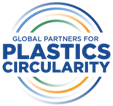Second Global Plastics Agreement negotiations bring into focus practical, effective solutions to eliminate plastic pollution
June 02, 2023

PARIS – As the second Intergovernmental Negotiating Committee (INC-2) to create a global agreement on plastic pollution concludes in Paris, the following statement on behalf of the Global Partners for Plastics Circularity can be attributed to Benny Mermans, chair of the World Plastics Council:
“The Global Partners for Plastics Circularity (GPPC) remain optimistic that practical and effective solutions have been brought to the forefront of the negotiations to establish a global agreement on plastic pollution.
“The GPPC continues to advocate an agreement that will accelerate circularity, maximize the participation of UN member states, and is equitable to developing countries seeking to uplift their citizens. These principles must underpin the global agreement on plastic pollution.
“Across the globe, plastic producers and the plastics value chain are investing tens of billions of dollars to scale up circularity. This agreement can unleash even more by creating an enabling policy environment to foster additional investments and innovative solutions to tackle plastic pollution.
“To help achieve a world without plastic pollution, we need more than just recycling. We support more sustainably consuming and producing plastics, designing products for reuse and recycling, and universal access to proper waste management for the 3 billion people that currently lack it.
“Between now and INC-3, we invite governments to engage us. The GPPC has deep expertise to share, and we seek to collaborate to find solutions that can help solve the unique challenges countries face towards eliminating plastic pollution.”
—
Global Partners for Plastics Circularity
The Global Partners for Plastics Circularity (GPPC) is a multinational collaboration of associations and companies that make, use and recycle plastics. GPPC is supported by the World Plastics Council and the International Council of Chemical Associations. We are advocating a global agreement to help accelerate a sustainable, circular economy for plastics. These modern plastic materials are used around the world to create essential and often life-saving products, many of which are critical to a lower carbon, more sustainable future.





